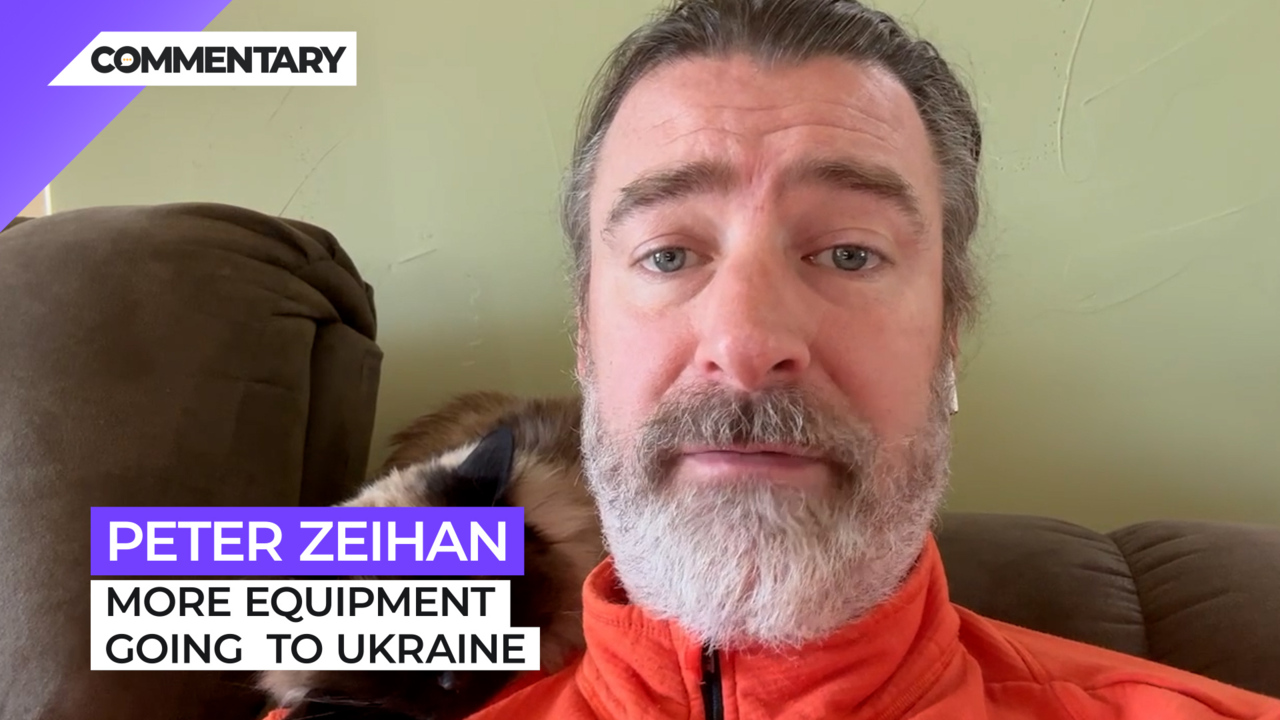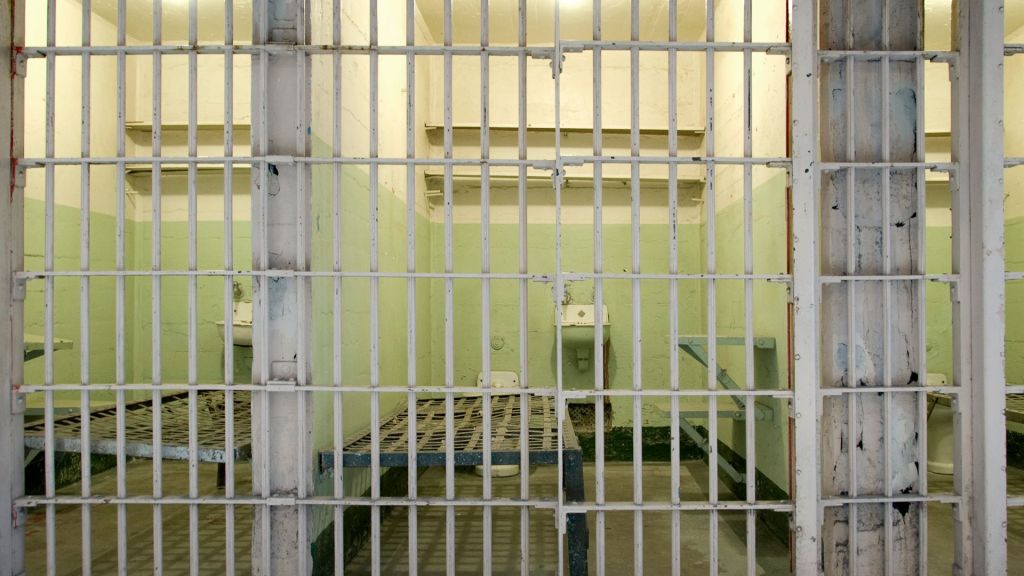
Commentary
-
Our commentary partners will help you reach your own conclusions on complex topics.
Everyone, Peter Zion here coming to you from Colorado. I’m inside the day because it’s way too cold to be outside. It’s actually humid, which is weird. Anyway, this is Pandora, she’s my copy editor.
Today the big news is that the German defense minister or woman by the name of Christine Lambrecht has finally resigned her position. Now lambrick is not somebody with defense experience. She’s a political, she has been up relatively high in Germany’s Social Democratic Party, which is a center left party for decades. So it’s not that she’s a nobody, it’s just she doesn’t have a lot of skills that are appropriate to her current portfolio. This has not been a problem. In fact, her specific, deliberate, intentional incompetence in defense matters, in many ways was seen by the SPD as a plus. Because until we got to the point that the Germans were reformulating or taking off candy, okay? Until we got to the point that the Germans were reformulating everything because of the Ukraine war, the general position in Germany as a whole, and specifically in the SPD, was that the Defense Ministry itself is unnecessary, that in the aftermath of the Cold War, the threat to Germany is gone. And while we might find that a little bit, you know, naive, you have to look at it from the German point of view. Whenever Germany has had to act in order to protect its own interests, things have gotten a little out of hand, the German state is in a bit of a geopolitical pressure cooker, it is surrounded by rivals and potential rivals. And in any era where the Germans have felt it’s necessary to have a defense ministry, they’ve discovered that being surrounded and having a defence force that’s worthy of the name generally triggers a lot of angst everywhere. And so you get one of two things, either all the countries surrounding Germany gang up on it, in order to put it in a box, in which case Germany loses a catastrophic war, or the Germans act preemptively in order to remove some of those potential rivals from the scene. In which case, you get a war that ultimately puts Germany in a box. And whipping back and forth be these two extremes has been absolutely horrible for the Germans. So for the Germans, the post cold war environment in Europe has been the best it’s ever been. You’re talking about a golden age, because NATO is provided defense. But all the countries that bordered Germany are either neutral, like Switzerland, or are members of NATO, which is basically everyone else. And in that sort of environment, the Germans can kind of dinner and become pacifist socialist, which to be perfectly blunt, looking at the long stretch of German history is much, much, much, much, much better for everyone than the alternative. Now lambrick Anyway, was put in charge of the Defense Ministry just basically continues slowly sliding it into functional Oblivion, the Germans have been spending less and less on defense for years ever since 1992. And basically, the the unofficial goal with Lambert is to make the military a non thing. Well, that doesn’t work in an environment where the Russians are back on the warpath, and the Germans need to be starting thinking not just about 20th century military strategy, but 19th century military strategy. And Lambert was completely unprepared, professionally, personally and ideologically for this sort of shift. And so when the government decided to basically double the size of the defense budget, she had no personal experience, professional experience and how to do that. And the result was a series of policy mishaps. She also had a lot of the built in distrust for the United States that comes from the German center left, which really doesn’t like the idea that the United States writes German defense policy to a degree, which, you know, obviously clashes with the goal of getting rid of the Defense Ministry altogether. So there wasn’t really anything about the current environment where she was an appropriate candidate anymore. The strategy had changed. The reality had changed. The geopolitics had changed. And she had so obviously, she had to go. The question now is what else goes with her. The Germans had been very reticent to provide top tier military technology to the Ukrainians, not because they don’t want the Ukrainians to ultimately win the war. But because the German position in this space has been specifically to avoid a military conflict. And that goes back to before 1992. The Germans have always known that there was a military conflict of size, they would obviously be drawn in, and in a world where they are trying to make up for the sins of the past, having any sort of proactive military policy just grates against everything that they have been raised to believe since 1946.
They’re dealing with the change in circumstance and that’s uncomfortable, and that is grading even without the ideology. But now we’re nearing an environment where the Russians are not just mobilized.
In but mobilizing and force, they’re finally beginning significant industrial upgrades, they’re finally starting to churn out missiles and ammo and tanks and numbers. And they are finally doing a full scale mobilization. This isn’t the 300,000 that they did a few weeks ago, we’re talking about at least another half a million men likely been in the theater within a very few number of months. And so by the time we get to May in June, the Russian military is going to look very different. And in that environment, especially with this lead up, where the Russians aren’t quite ready for big offensive operations, where they’re lobbing missiles and drones into civilian infrastructure. It’s really cracking through the ice and the German political discussion on what a strategic policy means. And that means more and better equipment is going to be going to Ukraine, and Lambrecht, the former defense minister was part of an obstacle system that prevented that from happening now she’s gone. So we’re probably going to be seen movement in Berlin on things like leopard tanks. Now the Leopard tank is one of the top two tank systems that exists in Europe, the other one being the M one Abrams from the United States. And there are a large number of NATO countries specifically in Europe, that have a relatively large fleet of these tanks, in storage or in use, and they are probably the easiest ones for the Ukrainians to absorb in numbers. So there are a number of countries specifically Denmark and Poland who have been pressuring the Germans in order to allow them to take these exported tanks and then send them on to Ukraine that requires Berlin’s approval. And Berlin to this point has been to Marine, but the coalition now involves almost every single country that the Germans have sold the leopards to. And so all of a sudden with Lambert gun. All of this is in motion. And I think we’re going to see the Germans relent on at least letting other countries Senator leopard’s within a very short, short number of weeks, because these tanks have to be absorbed by the Ukrainian military before we get to that may into June offensive. And so time is running out. Well then have a conversation in Germany about strategic policy. And so probably in February and March, the Germans themselves are going to publicly decide whether or not they are going to going to contribute their own leopards, and spin up their own industrial complex so that more leopards can be made and refurbished to get into the fight as well. But that’s a conversation for another day. First step is simply removing the obstacle that prevents other countries from sending their tanks on. I think we’re gonna see movement on that very, very, very soon. All right. That’s it for me. Until next time,
-
Hurricane Helene hits US coast, Appalachia and beyond
Hurricane Helene hit Florida and Georgia overnight between Sept. 26 and 27 as a Category 4 hurricane, and accompanying storms will continue reaching deeper into the continental United States today. Dangerous flash flooding from the hurricane, known as storm surge, was some of the worst flooding that the Tampa Bay area has ever seen, and… -
Israel holds upper hand against Lebanon, Hezbollah and Iran
On Wednesday, Sept. 25, Hezbollah launched a ballistic missile at Tel Aviv in retaliation for Israel’s explosive pager attack that blew up devices across Lebanon. Although Israel’s defense systems intercepted the surface-to-surface missile, the attempted strike on Tel Aviv marked a significant escalation by Hezbollah. Since the siege on Gaza began, shortly after the Oct. 7, 2023,… -
The Sinaloa Cartel civil war
Fears of a civil war within the Sinaloa Cartel are growing as violence between competing factions within the cartel continues. The Mexican Army has dispatched around 600 elite troops to Sinaloa to help quell those fears, in addition to roughly 2,200 regular soldiers and National Guard. Watch the above video as Straight Arrow News contributor… -
New Ukrainian weapons hit Russia where it hurts
Ukrainian drones struck a major Russian ammunition depot, triggering a massive explosion that was captured on camera. According to the Ukrainian military, 2,000 tons of munitions had arrived at the depot before the attack. Over the past two years, Ukraine has significantly increased its domestic drone production, allowing it to scale up attacks on military… -
Weighing social costs vs. economic benefits on immigration
Global human migration is one of the defining elements of our current historical era, according to the United Nations. Migrants face both the incentives to leave — forced out by climate change, crime and corruption, extreme poverty or violence — and incentives for where to go, based on available job opportunities and so on. Migration…
Latest Stories
-
 Getty Images
Getty Images
‘Man with the Golden Arm’ who saved millions of Australian babies dies at 88
-
 Getty Images
Getty Images
Cancer-causing toxins found in 10 popular braiding hair brands: Report
-
 Getty Images
Getty Images
DHS Secretary Noem tells wildfire victims to protect themselves and property
-
 Getty Images
Getty Images
NFL draft odds: Post-combine, who will be the first overall pick?
-
 Getty Images
Getty Images
Former Social Security head claims DOGE will cause payment interruptions
Popular Opinions
-
In addition to the facts, we believe it’s vital to hear perspectives from all sides of the political spectrum.
Latest Opinions
In addition to the facts, we believe it’s vital to hear perspectives from all sides of the political spectrum. We hope these different voices will help you reach your own conclusions.
The opinions published in this section are solely those of the contributors and do not reflect the views of Straight Arrow News.





















Latest Commentary
We know it is important to hear from a diverse range of observers on the complex topics we face and believe our commentary partners will help you reach your own conclusions.
The commentaries published in this section are solely those of the contributors and do not reflect the views of Straight Arrow News.
Dr. Frank Luntz
Pollster and Political Analyst‘Biased’: What Americans think of ‘mainstream media’
‘Getting rid of them’: Americans discuss Trump and immigration
‘Woke’: Why some Biden 2020 voters backed Trump in 2024